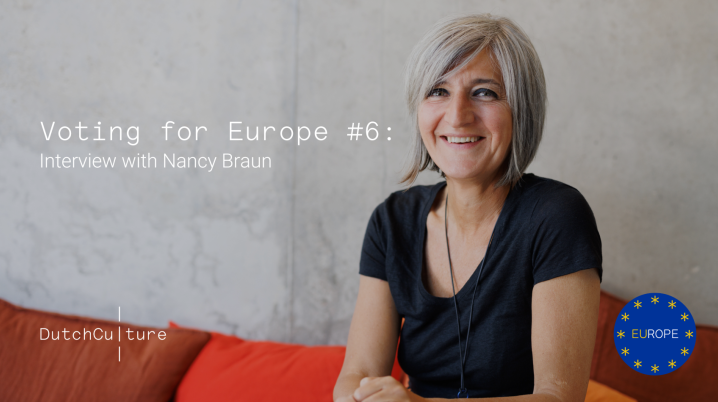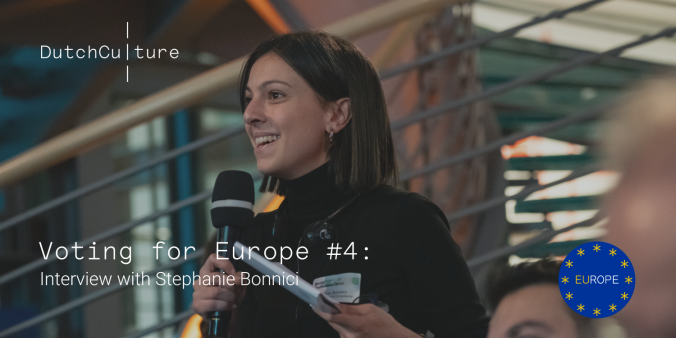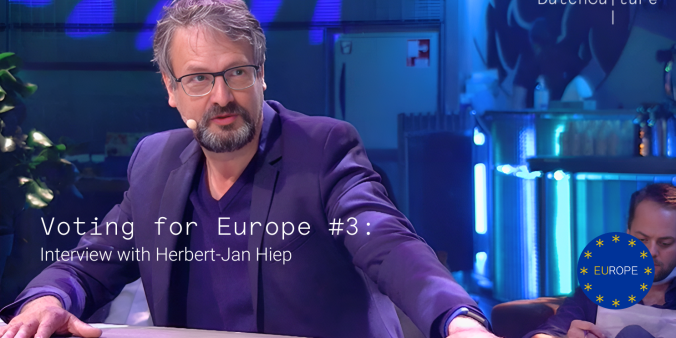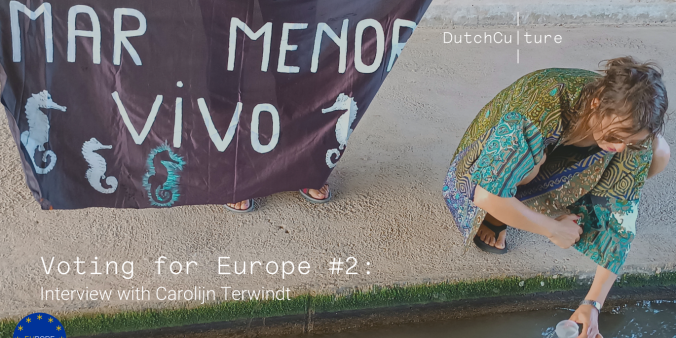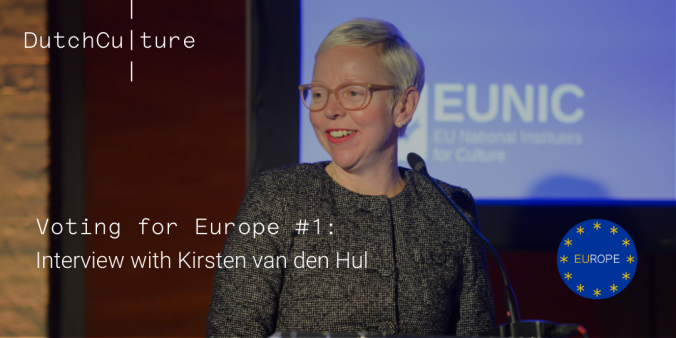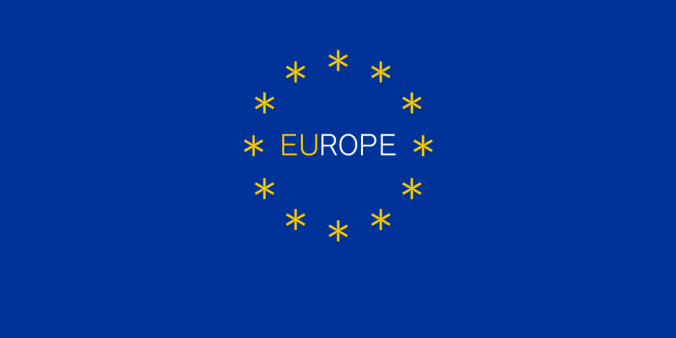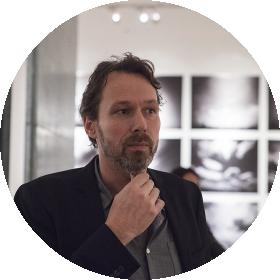
Citizens from 27 EU countries recently had the opportunity to vote in the European Parliament Elections. This crucial event continues to shape the future of Europe and our planet, influencing European cultural policies for the coming years. Considering the outcome, fundamental values such as democracy, human rights, and freedom of speech remain at stake as the new parliament is formed.
That is why we will continue to reflect on the role of culture in nurturing a united Europe for the rest of the year. In this interview series, we are eager to learn from artists and a wide range of cultural professionals about what Europe and the EU mean to them personally and for their practice. Additionally, we explore how cultural exchange can contribute to a stronger shared European social and cultural space.
Nancy Braun
In this interview, we talk to Nancy Braun. She was the general director of Esch2022 – European Capital of Culture in Luxembourg. The city of Esch-sur-Alzette, as well as the entire Southern Region, was designated European Capital of Culture in December 2017 and carried this title throughout 2022, together with Kaunas in Lithuania and Novi Sad in Serbia. In February 2024, Nancy Braun became a candidate for Luxembourg’s Demokratesh Partei in this year’s European Parliament elections.
Do you perceive yourself as European? Why?
"Well, what does being European actually mean? I have Luxembourgish nationality, but I truly feel I am a European. This feeling is especially prevalent here in Luxembourg because we live Europe every day. We have so many different nationalities and communities living together. Many people come from neighbouring countries to work in Luxembourg every day. We switch languages very easily. We sometimes say that we speak in French and dream in Luxembourgish, German, or English. With this multicultural environment we live in, I definitely feel European.
I think my life experiences have shaped this perception. I was born in a small village in Luxembourg, where only Luxembourgers lived. But when I started going to school, everything changed. I was always surrounded by foreign nationalities. Living in Luxembourg means constantly interacting with other communities who may not necessarily speak your language. When I was little, we had very few TV channels in Luxembourgish, so we often switched to German or French programmes, or we listened to English radio. This multilingual and multicultural exposure is always around us.
Living in Luxembourg means living in a European world. This makes it interesting and integral to our lives. I realised how unique our situation is when I travelled for the European Capital of Culture project Esch2022 for several years. The difference between Luxembourg and other European cities is striking. Luxembourg is very close to the centre of Europe, both geographically and culturally. This closeness makes me feel like a European, especially when bringing this European dimension to other cities and colleagues. It's something you're born into here."
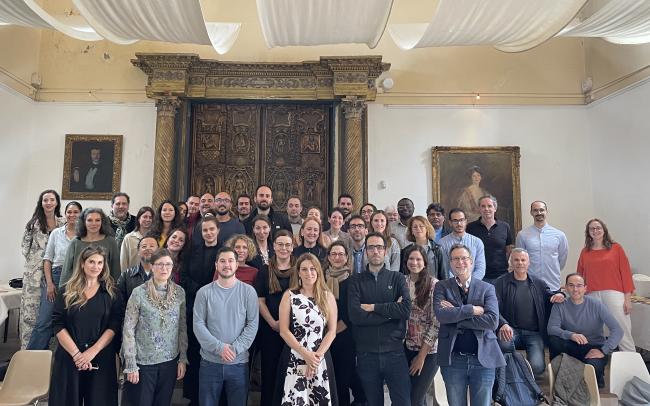
Can you share a specific example or experience that illustrates the impact of European cultural cooperation on your work?
"In Esch2022, we had over 120 different nationalities living together, and our theme was Remix Culture. This meant blending various customs and traditions, to create something new. This process of mixing and creating a new European identity is essential. The South of Luxembourg, where the steel industry attracted many immigrants, is a perfect example of this remixing. Italians, Portuguese and others came for work, and their cultural contributions enriched Luxembourg. Esch2022 showcased what Europe is about—different cultures coming together to create a unified yet diverse identity.
In Luxembourg, many people speak English because it is a common language when going abroad. Language is vital to bringing people together. For instance, in Luxembourg's museums, information is available in French, German and English, making it accessible to almost everyone. But when I visited Kaunas, our partner city in Lithuania in 2022, museum information was primarily in Lithuanian with a bit of English. This highlights the necessity of multilingualism in our multicultural society.
The challenge with the European Capital of Culture project lies in its title—'Europe' and 'Culture' can be intimidating for some. People often associate culture with elitist art, but it encompasses much more. We focused on making culture accessible to everyone, demonstrating that it includes various forms of expression and traditions."
Could you tell us more about your work as the director of Esch2022 and as a European parliament candidate?
"As the general director of Esch2022, I was responsible for developing it, setting up the team, and bringing the European Capital of Culture concept to fruition. This involved defining and explaining what culture means, encouraging international and European relations, and promoting Luxembourg as an exemplary model of European integration. Our mission was to connect partner cities, demonstrating how Europe can function and the importance of cultural collaboration.
As a candidate for the European Parliament, my focus remained on culture. Jean Monnet, a key thinker of the European Union, once said that if he could start over, he would start with culture. He was right. Culture is our common ground, essential for building a unified and respectful Europe. Understanding and respecting cultural heritage is crucial for welcoming new countries into the Union and strengthening our collective future.
Culture plays a vital role in societal issues too. For instance, addressing mental health, especially among the youth, is critical. Programmes like CultureForHealth show how cultural engagement can positively impact well-being (CFH is a joint European effort raising awareness of the important role culture and art play in enhancing health and well-being; eds.). Culture is not just about art; it is about social cohesion, understanding, and unity. It's a foundation for tackling various challenges, promoting dialogue, and stimulating leadership in Europe."
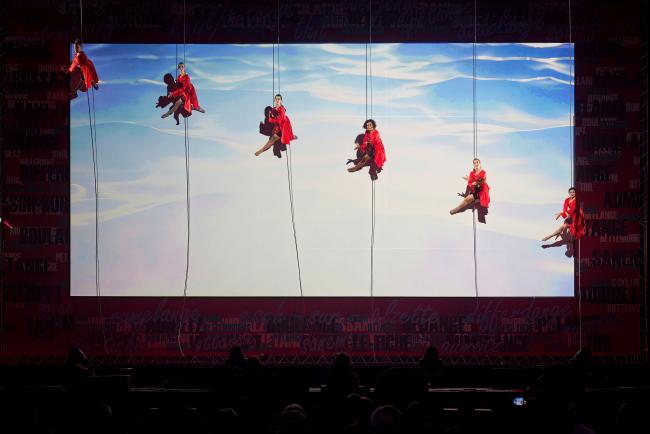
In this context of cultural collaboration, how important is the outcome of the European elections in your opinion? What is at stake?
"European elections are always important, but especially now. We face significant challenges with Ukraine and Russia, uncertainties with China, and unpredictable political dynamics in the United States. People have the power to impact and strengthen the Union. In Luxembourg voting is mandatory, but in other countries, it is not. I always encourage everyone to vote for a stronger Europe, preventing anti-European parties from gaining power.
Voting is essential because it shapes the future of Europe. We are Europe, and our actions and decisions impact its trajectory. It's not just the bureaucratic buildings in Brussels; it is about the representatives of different countries making decisions. If you want Europe to deliver, you must actively participate in shaping it.
The future of Europe is our collective responsibility. We enjoy many benefits such as free movement, common currency, and cultural exchanges. These are achievements of a united Europe. People must recognise this and act to preserve and enhance our Union."
What challenges and opportunities do you see for cultural collaboration across European borders, and how do you think they can be tackled?
"The rich cultural diversity in Europe is what makes it so fascinating. Travelling across Europe exposes you to different mentalities, traditions and cultures. This diversity is Europe's strength. European programmes already promote this cultural exchange, but we need to push further and make them more accessible by reducing bureaucracy.
I want to simplify these processes because it would encourage more involvement, creating more cross-border collaborations and cultural exchanges. Engaging young people in this is particularly important for the future. It helps them understand different cultures, share values, and develop a sense of European identity.
Using new technologies to connect countries and citizens can also enhance cultural cooperation. It's all about stimulating dialogue, providing training, and making cultural collaborations a natural part of life. That is what I work towards."
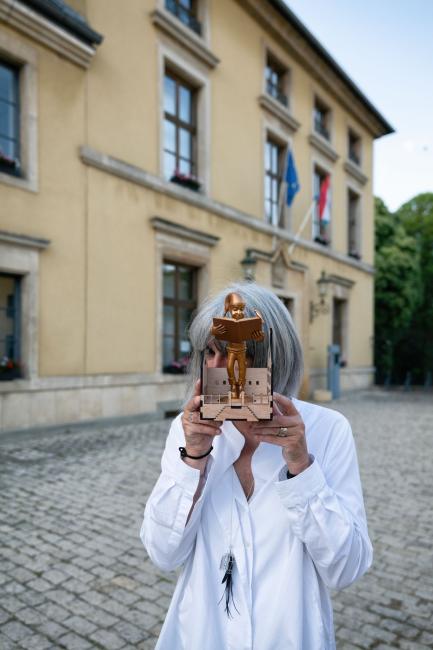
Do you have a message for the European people, for policymakers, MEPs, or other decision-makers about the importance of supporting and prioritising European cultural collaboration?
“It is crucial to prevent anti-European parties from gaining influence and to ensure that Europe progresses and has a future. Dialogue and understanding are vital, and culture plays a significant role here. Therefore, policymakers and decision-makers must take culture seriously. It unites people across generations, genders and nationalities. It promotes exchange, preserves heritage, and strengthens social ties. Culture is essential for social cohesion and addressing crises. We must think broadly, and use culture as a foundation to tackle challenges and prevent further problems.
My next steps involve continuing to promote cultural collaboration and understanding. I focused on these themes during my candidacy for the European Parliament. By emphasising culture, we can build a stronger, more unified Europe capable of facing future challenges together."
What are your favourite European cultural tips?
“I would recommend going to the European Capitals of Culture because there you can actually feel what culture is all about. This year the capitals are Tartu in Estonia, Bad Ischl in Austria, and Bodø in Norway. They are often not the biggest cities or the capitals of countries, but they are the real capitals of culture.
Another tip is Les Rencontres d'Arles. I visit this photography festival in Arles, in the south of France every year. It has existed since 1970 and has great historical and cultural significance. The Luxembourg pavilion showcases photographers from our country. Arles itself is also worth visiting by the way.
And, of course, visit Luxembourg to see the heritage of Esch2022! There are so many wonderful projects still ongoing that are worth to be seen."
Europe & DutchCulture
DutchCulture is connected to Europe in a number of ways. We work closely with the Dutch embassies in 24 focal countries worldwide, including nine in Europe. We establish collaborations with these countries in the field of culture and cultural heritage. With our Europe + Heritage programme, Dutch heritage professionals are stimulated and enabled to set up European heritage knowledge exchanges. We offer advice on the Creative Europe programmes and seek to shape the future of cultural relations through the EUNIC network.
